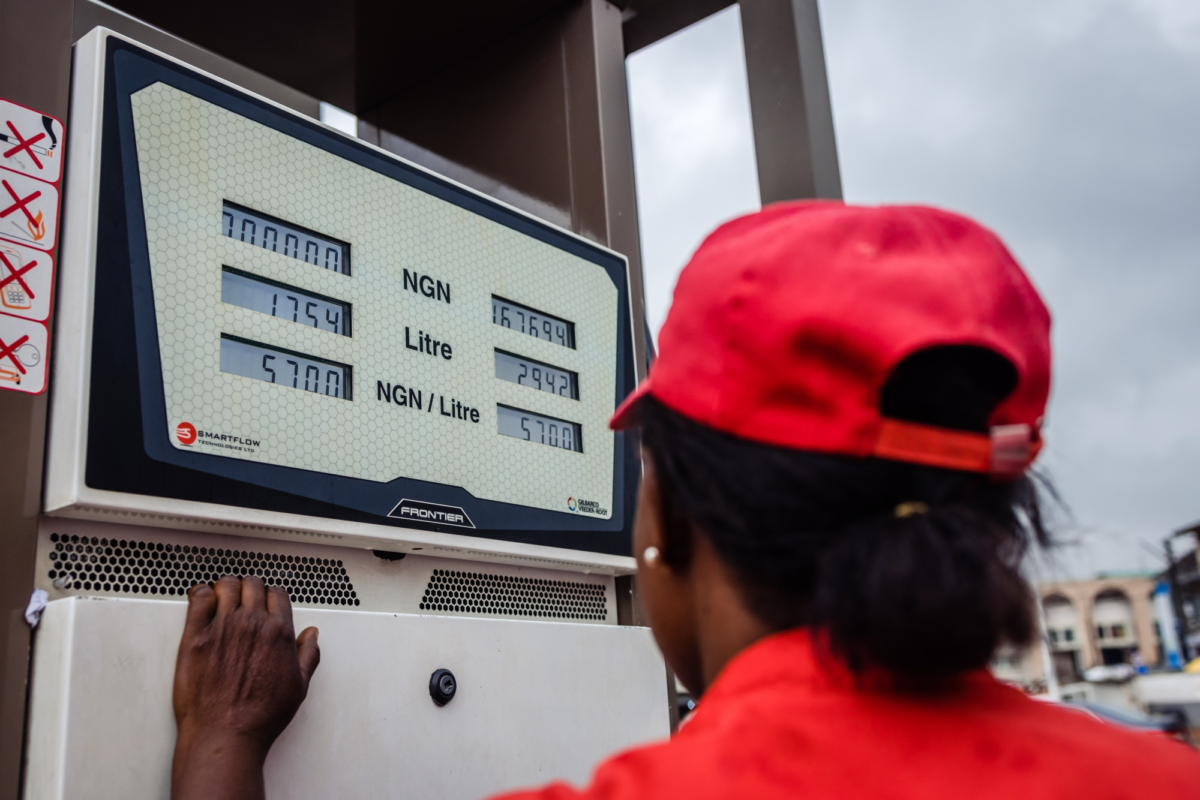[ad_1]
Because the solar rises on one other day in Nigeria, so does the price of residing. Gasoline and commodity costs have been on a gentle climb, inflicting widespread concern amongst Nigerians. The African Growth Financial institution has even warned of potential social unrest because of this escalating financial strain.
Furthermore the Nigerian Nationwide Petroleum Company (NNPC) has said it has no quick plans to extend petrol costs. Nevertheless, the costs have already reached an all-time excessive of 617 Naira ($0.7802) per litre, a staggering tripling of prices over a single month. This fast inflation has squeezed the funds of hundreds of thousands of Nigerians, resulting in cries of despair from the lots.
The Root Causes of Nigeria Rising Gasoline and Commodity Costs
A number of components contribute to Nigeria’s surging gas costs, with the worldwide oil market’s volatility taking part in a major position. Nigeria, regardless of being Africa’s largest oil producer, lacks adequate refining capability, leading to heavy reliance on imported gas.
Moreover, inner challenges resembling infrastructure deficits, regulatory uncertainties, and mismanagement inside the oil sector have aggravated the gas shortage.
Smuggling and the sale of gas at costs above the official fee worsen the scenario, undermining official efforts to stabilize the market and maintain gas inexpensive for the typical Nigerian. These root causes have created an ideal storm, resulting in the present disaster.

Potential Social and Financial Implications
The Nigeria rising gas and commodity costs has far-reaching implications. Economically, it impacts the every day lives of Nigerians as larger gas costs result in elevated transportation prices, in the end elevating bills for commuting and items transport. This has considerably slowed down financial progress and exacerbated poverty ranges.
The surging costs have additionally ignited social tensions, threatening to disrupt Nigeria’s fragile socio-economic material. In response to a report from Nairametrics, consultants from the African Growth Financial institution warning that with out swift and efficient intervention, the rising value of necessities may precipitate social unrest.
Already, the scenario is inflicting grievance amongst totally different social lessons, as probably the most susceptible populations are disproportionately affected.

Balancing Act: The Authorities’s Function
The Nigerian authorities finds itself in a precarious place. On one hand, it should handle financial realities and worldwide market dynamics.
On the opposite, it has an obligation to guard its residents from the tough results of those realities. The federal government should take decisive and sustainable motion to handle the basis causes of the disaster.
This consists of boosting native refining capability, strengthening regulatory mechanisms, tackling smuggling and corruption, and restoring subsidies or implementing focused social security nets.
Furthermore, the federal government should talk transparently with residents to handle expectations and foster public belief. It must also have interaction related stakeholders to develop complete options contemplating all views. The federal government may additionally contemplate implementing social security nets for susceptible populations.
Finally, the federal government should steadiness its financial targets with its accountability to safeguard the well-being of Nigerians.
Backside Line
Nigeria rising gas and commodity costs current a fancy problem that requires a balanced and nuanced strategy. The federal government’s response won’t solely form the nation’s financial trajectory but additionally decide the nation’s social stability.
As the price of residing continues to rise, so does the urgency for decisive motion. The world watches with bated breath as Nigeria navigates this financial tightrope.
[ad_2]






